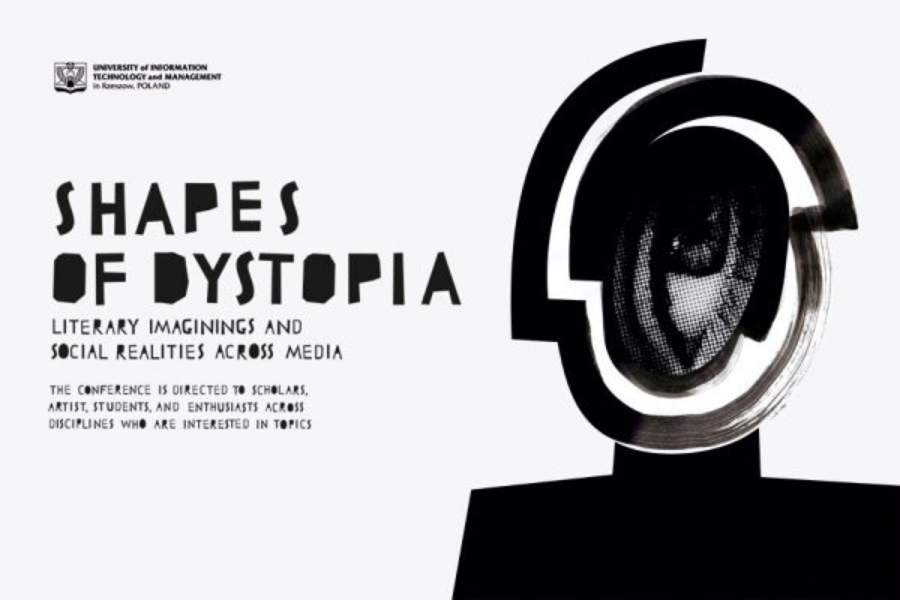Together with the UITM Academic Center for Personal Development and Psychotherapy, we want to give you some tips on how to deal with fear, stress during this pandemic. Together we are stronger!
The pandemic came unexpectedly and created a lot of stressful situations, especially for students. Young people usually have a lot of plans and dreams, so it is difficult to delay them right away. Additionally, the fact that half of our students are foreigners and being away from home during this situation creates more difficulties and sometimes even panic. That’s why we asked our Academic Center for Personal Development and Psychotherapy for some tips which will help you, our students, to be more in contact with yourself and your emotions.
This time we will discuss anxiety, fear and panic.
„A man without fear would be unable to avoid dangerous situations, just like a man without feeling of pain is unable to avoid constant damage to his body.”
Antoni Kępiński
Do you feel fear, anger or sadness? This is normal!
Closed colleges, schools, cinemas and shopping malls, the need to reorganize everyday life, the need to stay at home, border controls – coronavirus pandemic and associated restrictions are a difficult adjustment for most of us. The natural reaction is to feel all sorts of emotions: anxiety, anger, sadness and depression. Each of these emotions has something to tell us.
Anxiety, for example, informs us that we are dealing with a threat and thus we can take sensible actions to protect ourselves and other people as much as possible. So, to reduce the risk of infection, we wash our hands for at least 30 seconds, we do not leave the house without a specific reason (the need to work or make the necessary purchases), we eat well, we exercise to strengthen our immunity. If fear did not arise, we probably would not follow these recommendations, because „nothing threatens us”.
Experiencing fear in the current situation is natural and needed. The problem arises when anxiety becomes „all-encompassing”, fills every moment of our lives, prevents us from performing daily activities or pushes us to irrational actions. This level of anxiety does not need to be particularly worried, just after waking up, listening to news about other infected people, deaths, looking at Facebook, clicking on several links, looking at empty streets and the „about panic” state ready. Our imagination knows no boundaries, unfortunately also in the field of „winding” anxiety.
How to take care of thoughts and emotions?
It seems that the current situation is so difficult that it is worth taking care of the hygiene not only of the hands but also the mind and emotions. So how do you do that?
- Controlled and critical use of the media.
First of all, it is worth setting a specific time to browse the web, listen to and watch the news. Secondly, we use proven and reliable sources of information. It is worth comparing what happens to us when we constantly browse the Internet, listen to the news, and when we limit these activities and stop providing excess information stimuli.
- Looking at your thoughts and emotions.
It is worth stopping for a moment and reviewing your thoughts, how many worries are there, what are our fears? We can write them out and think about each of them, assessing their reality and probability of occurrence. If I am afraid that I will die as a result of possible infection with a virus, I can check e.g. what is the mortality rate associated with this virus; am I at higher risk because of my age; do I know what to do when I suspect an infection, etc.
The second process that is worth carrying out by looking at your worries is to assess what I have an influence on and what I don’t. In areas where we have influence, we can, after all, take action to reduce the chance of falling ill, for example. When we observe that worrying takes a large part of our day, it is worth setting time limits. As in the case of tracking information in the media, we set 15 minutes to worry and that’s it.
- Relations with people.
Conversation with another person, hearing, acceptance, understanding, good word – it is worth remembering. Empathy, a sense of community and cooperation can give us a huge sense of strength. It is worth reaching into your resources: skills, talents, interests, which in various ways can be useful in the current situation. They can cheer up someone, inspire them to act, calm them down. So instead of focusing on your worries, it’s good to focus on relationships with others, how we can help others: neighbours, relatives and strangers.
Written by ACROiP (UITM Academic Center for Personal Development and Psychotherapy).


